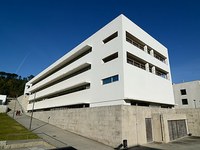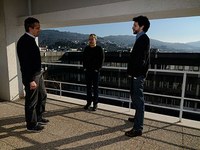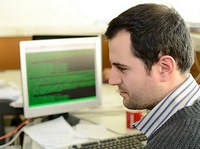HASLab becomes INESC TEC Privileged Partner
This is the first time that INESC TEC has welcomed a group outside of the city of Porto. The group work in High Assurance Systems and see INESC TEC as a platform from which they can launch their research. The BIP team interviewed Rui Oliveira, one of the group managers and he told us about the Laboratory’s history and enthusiastically presented his hopes for the future with regard to this link with INESC TEC.
Porto and Minho united in high-class research


INESC TEC recently welcomed HAS Lab as a Privileged Partner. The group is based in Minho and was formed in 2010 from the Centre for Computer Science and Technology (CCTC) and the IT Department at the University of Minho, led by Jorge Sousa Pinto. Despite the group being quite recent, some of the researchers have more than 25 years of experience. The group has a total of 60 members, 21 of which have PhDs and the majority are Professors or grant holders. “At the end of 2010, we formed HASLab” in order to unite “a strong and ambitious strategy in one coherent project with researchers with relevant experience in the design, development and validation of high assurance software”, explains Rui Oliveira, a Professor at the University of Minho.
In order to implement a High Assurance System, you need correction, response capacity, provability, robustness and security. Bringing together these different areas through multidisciplinary knowledge is one of the main challenges that HASLab hopes to meet. “We will be able unite a critical mass of expertise in one multidisciplinary research unit with wide ranging competencies in a larger number of areas”, the researcher states.


HASLab is awaiting recognition as an R&D unit from the Foundation of Science and Technology (FCT). Once recognised, they will be able to request formal inclusion into the Associate Laboratory. HASLab is eager to promote and conduct joint research projects using joint competencies in High Assurance Systems. “Once we have obtained this recognition, we are fully confident that we will be able to join INESC TEC as an Associate Unit”, he confirms.
Developing systems that we can trust
So what are systems we can trust? What are they for? Rui Oliveira begins by explaining that “we must be able to trust that the components of critical systems are defect free, immune to improper use or improper intent of use and that the system will at least be able to withstand these problems without behaving incorrectly”. HASLab works in “the various stages of software development to ensure that the system’s behaviour is strictly in accordance with the objectives for which it was designed”.


Critical systems that depend on this software are no longer confined to traditional and critical infrastructures, such as energy networks, water networks, transport networks, surveillance and civil protection networks or vital control systems that we invariably associate with health and aeronautics. Rui Oliveira confirms that these all “invade our daily lives and they reveal their true importance when we are unable to make a telephone call, for example, or a bank transaction or shop in a supermarket”. According to Rui Oliveira, “in practice, being able to trust software that affects our daily lives will soon no longer be an option, it will be absolutely indispensable.”




